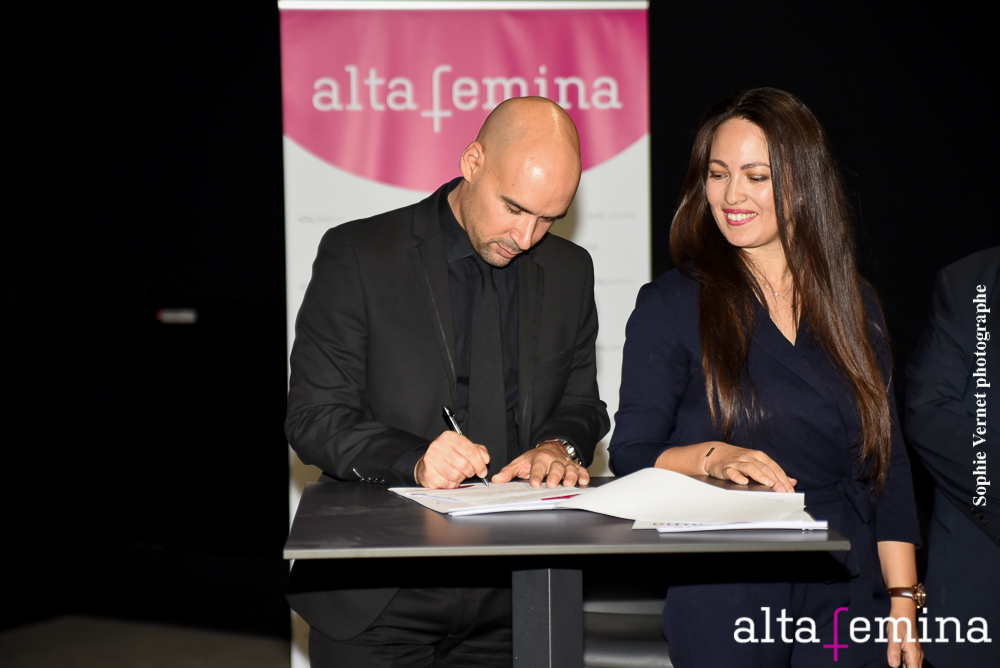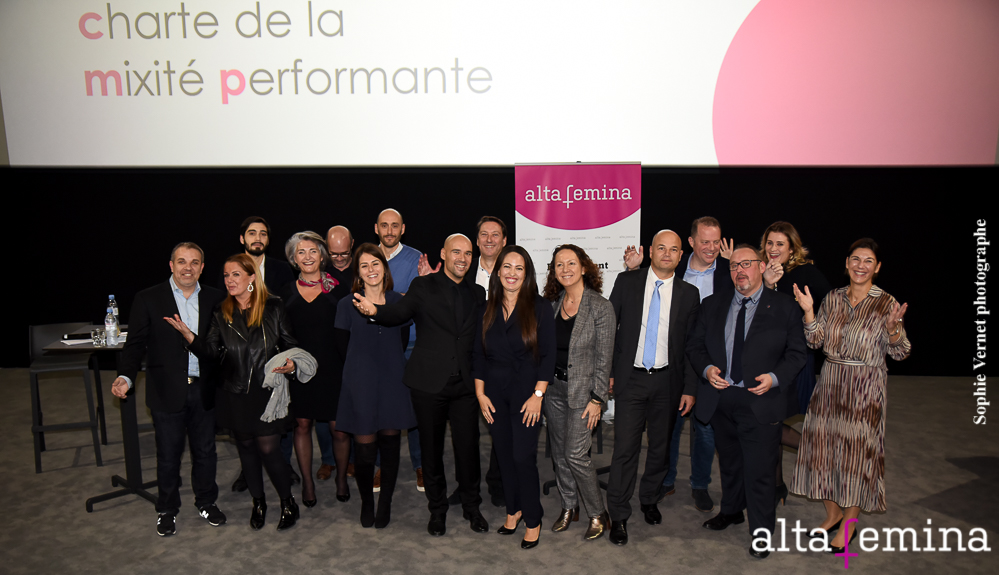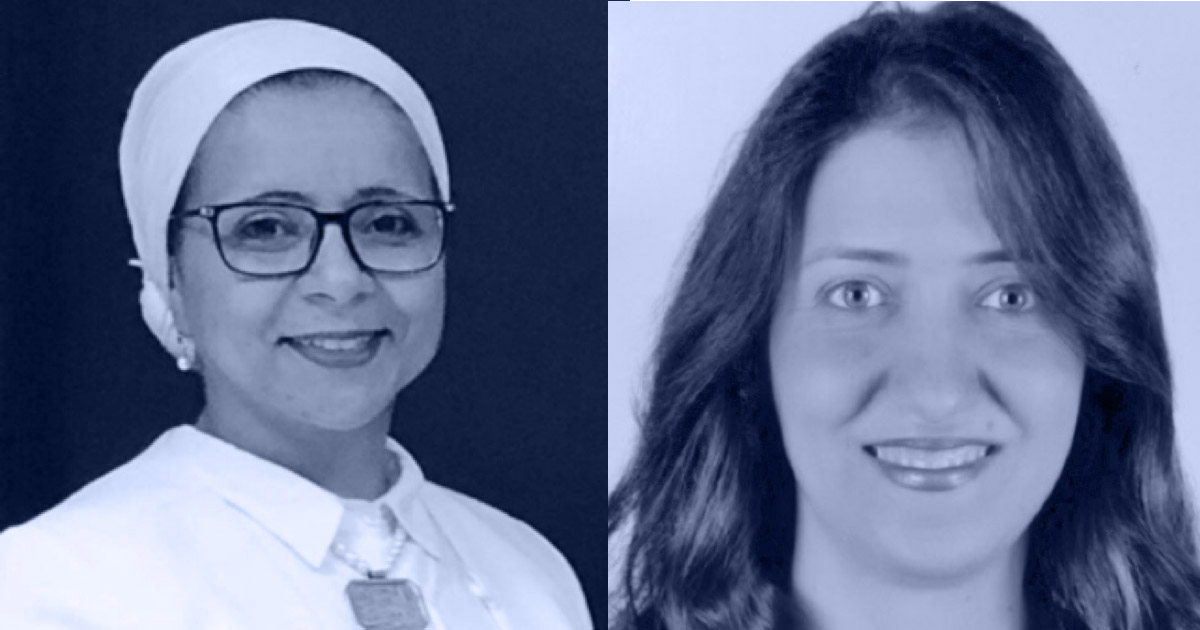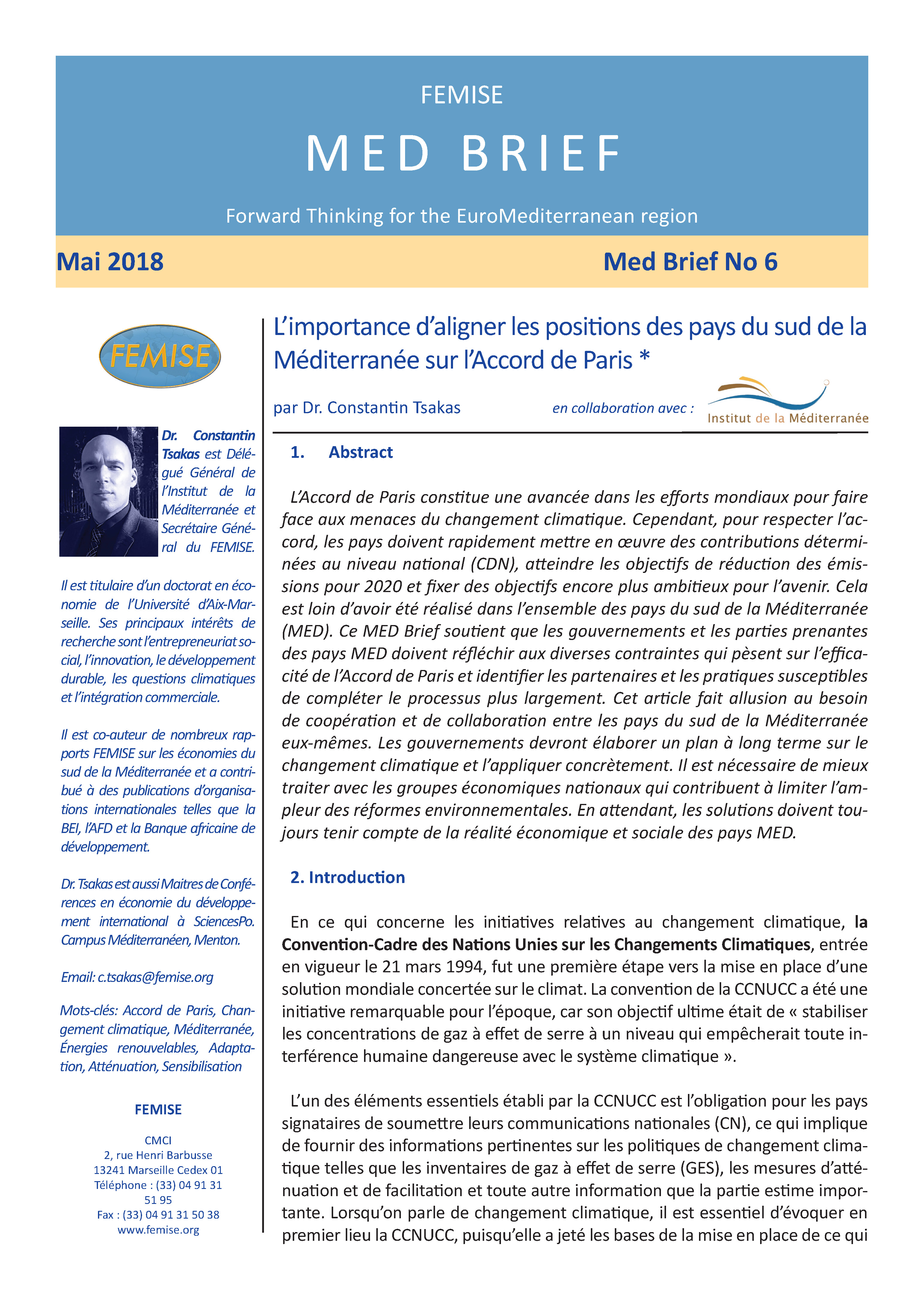The coronavirus crisis threatens our health and, as a result, it also hurts our societies and our economies. But it offers us an opportunity to rethink our priorities and systems, to make them sustainable, inclusive, in line with the SDGs.
FEMISE contacted its researchers and partners but also young people from the Mediterranean, to remind everyone why investing in Health should be a priority. Protecting vulnerable populations who do not have access to medical care, ensuring better access to health information in countries where internet access remains limited, supporting the work done by women in the health sector, betting on education and human capital…
The Mediterraneans mobilized by FEMISE share their views in the above video.
with : Constantin Tsakas, Mohammad Abu-Zaineh, Leila Berrada Mnimene, Mariam Fadel, Raphaël Colombier, Karine Moukaddem, Myriam Ben Saad, Jamal Bouoiyour







 The policy brief has been produced with the financial assistance of the European Union within the context of the FEMISE program. The contents of this document are the sole responsibility of the authors and can under no circumstances be regarded as reflecting the position of the European Union
The policy brief has been produced with the financial assistance of the European Union within the context of the FEMISE program. The contents of this document are the sole responsibility of the authors and can under no circumstances be regarded as reflecting the position of the European Union The FEMISE Policy Brief series MED BRIEF aspires to provide Forward Thinking for the EuroMediterranean region. The briefs contain succinct, policy-oriented analysis of relevant EuroMed issues, presenting the views of FEMISE researchers and collaborators to policy-makers.
The FEMISE Policy Brief series MED BRIEF aspires to provide Forward Thinking for the EuroMediterranean region. The briefs contain succinct, policy-oriented analysis of relevant EuroMed issues, presenting the views of FEMISE researchers and collaborators to policy-makers. 